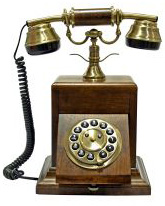Why not?
Category Archives: Uncategorized
Grand Rounds, this week and the next
This week’s compilation of medical blogging highlights is up at Gruntdoc.com. Read through his collection of great links from the past week.
I’ll be hosting next week’s Grand Rounds. Please send me an email with a link to your best writing, or a link to another medical blogger whom you think wrote something worthy!
drcharles.examining at gmail
Each day
the artist came to paint her brightly colored mural on the brick wall of the warehouse by the derelict park. Around noon an old man would arrive and take his customary seat beneath a great elm tree. He enjoyed watching the artist work.
On the day the mural was finished the artist approached the old man and extended her paint-splattered hand. Hello, she said. I hope you like the mural.
It’s been wonderful to see it go up, the old man said with a smile. The girl you painted looking out the window reminds me of my daughter. I miss her. She’s far, far away from these ruined streets.
The artist sat down next to the old man, her silent companion for the past three months. They both admired the vibrant mural. They talked about art, life, and the dangerous neighborhood. The old man shared a photo of his daughter. The artist agreed there was a slight resemblance as she studied the tattered, wallet-sized portrait. She then packed up her paint cans, brushes, and ladder.
The next day the old man sat beneath the great elm tree. He fed a mangy squirrel. He missed watching the artist paint. Looking up at the mural he suddenly realized that the artist had changed the face of the girl in the window overnight.
He wept with joy as he looked upon his daughter’s smiling likeness, knowing that each day he would now be able to see her lovely face in the park they once visited together.
Cellphonophobia
 I’d like to propose a new condition into the medical lexicon:
I’d like to propose a new condition into the medical lexicon:
Cellphonophobia – the fear that using a cell phone causes bodily harm, usually associated with avoidant behaviors that equate electromagnetic radiation with contagion.
Cellphonophobia is related to the obsessive-compulsive spectrum of disorders rather than those of the anxiety classification. Sufferers worry about being tainted with cancer-causing radiation emitted from their cell phone transmitters in much the same way that those with OCD worry about germs. Instead of compulsive hand washing, cellphonophobics use hands-free earpieces and speaker phones to achieve maximum separation from the cell phone. They prefer texting to talking, and turn off their cell phones when not in use. They may even give up the technology entirely and revert to landline use in all but emergencies.
Unlike telephonophobia, in which there is a social phobia about picking up the phone or making a phone call because of the other person on the line, cellphonobia is all about contamination.
I know this because I have a mild form of this condition. But as Nirvana sang: just because you’re paranoid doesn’t mean they’re not after you. Or something like that.
Continue reading
The discouraging truth about the food on my table
Beware the Top Docs
 I’m sure you’ve read through top doctor rankings and online physician ratings. It is only human to seek perceived leaders. But as sometimes seen in politics, those who have reached the pinnacles are often motivated by ambition, charisma, and gamesmanship instead of altruism, sincerity, and merit.
I’m sure you’ve read through top doctor rankings and online physician ratings. It is only human to seek perceived leaders. But as sometimes seen in politics, those who have reached the pinnacles are often motivated by ambition, charisma, and gamesmanship instead of altruism, sincerity, and merit.
Beware the top doctors issues found in magazines and newspapers. Some of these doctors are excellent, but many are simply “notable.” They may be well-connected, in leadership positions, or presidents of this or that society. Many are excellent self-promoters, branding themselves through the name brand institutions they work for and the billboards that increasingly advertise their faces. Many are simply well-known or popular among their peers. But many are unavailable, aloof, or consumed with administrative duties for the institutions through which they’ve risen in the ranks. Others stand apart from the rest due to their strong entrepreneurial efforts. I know of a “Top Doc” who prescribes dangerous medicines for conditions I’ve never heard of. Many of the medications cause weight loss as a convenient side effect. He’s considered “cutting edge” or “popular among patients” simply because he fills a niche that’s in demand. Last I heard, he’s being investigated, but still graces the “top docs” magazine.
Be cautious about your own feelings about a doctor’s competence. A good bedside manner and a kind heart are important, and thinking of your doctor as a friend may lessen anxiety. But a certain distance is needed for objectivity, clear thinking, and a person’s best interest. For example, consider the doctor who pleases all his patients by agreeing to prescribe whatever medications requested. Before long the medication list bores a hole into some Wonderland, with pain pills, sleeping pills, anxiety pills, and weight loss pills whirling together in a mind-altering, life-threatening existence. Consider the doctor who agrees to order every test you can think of, including full body CT scans that find little-nothings in your spleen, liver, lungs, and bowel that now require monitoring with more CT scans, soaking your body with cancer causing radiation and worry. You want a doctor who is not your best friend, who shoulders the uncomfortable task of telling you “no” when he believes it is in your best interest.
Beware the insurance company rankings of doctors based on quality measures. I just received a survey from a big insurance company. They picked one single patient from my practice and asked me if that patient had received colon cancer screening in the past ten years. I pulled the chart and looked over our notes from the past ten years. We had reminded, cajoled, educated, and tried to convince the patient of the benefits of colon cancer screening over twenty times, yet he refused or declined each time. But to the insurance company quality rankings, this means I have failed, and I will be penalized both in terms of my “quality” as a doctor and most likely my diminished compensation from that insurance company. Shall physicians also be ranked based upon how many of their patients ride motorcycles, drink soda, or eat Baconaise? Other quality measures include stratifying doctors based upon how many of their diabetic patients’ blood sugar readings fall below a certain goal. Yet there is overwhelming evidence that excessively tight glucose control does more to harm patients than help. In this case, the best numerical results for quality only correlate with higher mortality for patients.
Beware the websites upon which patients can submit reviews and rate different doctors. Just because a doctor is well-received does not make him a good doctor. As I’ve written in the preceding paragraph, pleasing people is easy. Disappointing them out of a sense of beneficence is actually quite hard. A perceived bad experience by a patient may provoke a negative review online, but improving people’s health and satisfying their needs and wishes don’t necessarily overlap. A doctor could see thousands of patients and do a good job with them all, but never be rated by anyone except the three disgruntled patients she did not please. And staying on time is every doctor’s goal, but sometimes a 92 year-old woman with multiple needs shouldn’t be dispatched of in 20 minutes, and patience is a community responsibility.
I understand the need to measure quality in any system as a means to figure out how things can be done better. But the crowning of top doctors, the bureaucratic measuring of imperfect health quality markers, and the compulsive clicking of online reviews are not the solution.
Unfortunately I don’t have the answers. Perhaps we as patients should be ranked, too? I already see signs that insurance companies are doing this in subtle ways.
Plastics? Robots? Nanotubes? Some combination of cold fusion and artificial intelligence? Or just old-fashioned word of mouth.
Floaters
 “Will you grab that spider web?” my grandmother said abruptly. We were sitting on an old bench overlooking the river. It was September. I had sprung her from the assisted living home earlier that day.
“Will you grab that spider web?” my grandmother said abruptly. We were sitting on an old bench overlooking the river. It was September. I had sprung her from the assisted living home earlier that day.
“Which spider web are you talking about, Gram?” I asked her. My eyes were sleepily watching the timeless flow of the big river, the eddies and swirls along the banks, and the gracefully bending boughs of the old oak trees as they waltzed with the wind.
“There to the left!” she said with certainty, reaching her bony hand into the sky and grasping at thin air. “Get it, will you?”
I looked again but there was nothing. I knew that my grandmother’s mind had developed a little static among the signals, a few crackling wires in the electric grid of her brain, and I figured that her eyes were playing tricks on her.
“I don’t see it, Gram. What does it look like?”
She seemed a little disappointed that I did not share her perception. “It’s feathery, and it’s drifting just over the river. It’s actually quite pretty.”
I let my eyes lose their strict focus. There was muddy blue from the river, majestic green and brown from the weeds, a smattering of orange and red from the leaves about to change in fall, and slate gray from the worn stones and pebbles along the riverbank. But still I couldn’t see the spider web.
“I think your eyes are playing tricks on you, Gram,” I finally confessed.
She frowned ever so slightly, embarrassed by the loosened reins she held over her body and the cloudy lenses through which she saw the world. She was a proud woman. She used to take me fishing along a tributary of the big river. It disgusted her that she could no longer drive a car safely.
“Well, the river sure is beautiful.”
“It is, Gram.”
“Shouldn’t we be heading back to the nursing home?”
“Only if you want.”
“You should get going, I don’t want you staying too long. You must be bored.”
“No Gram, I’m quite happy. Do you remember that summer the river was so low we could walk across it?”
She smiled. “I sure do.” She turned her head away from the spider web. I watched her ancient eyes gazing across the flow to the far banks of the mighty river. “It’s such a beautiful day here in the sun.”
“It is, Gram.”
Years have passed since that day. I wish I could take her down to the banks of the river and just sit there again. I wish I could hear her voice on the phone. I wish I could feel the knobby bones of her fingers in mine and marvel at how different our skins look.
It took me some years, but finally I can see the spider web. It floats off to the left side, just like she said it did. When I walk through the snow or look to the sky it is quite prominent. Sometimes it angers me that I’ve lost that perfect clarity of youthful vision I once had. Will I travel the rest of my life with this gray web they call a floater? Will I be an old grandfather someday and forget that the hovering filaments are only visible to my own retina? Unaware, will I ask my own grandson to catch the web on a beautiful fall day, before he takes me back to the nursing home?
The spider web is pretty, Gram. I’ll remember to watch for it out of the corner of my eye. I’m glad you saw it, too.

